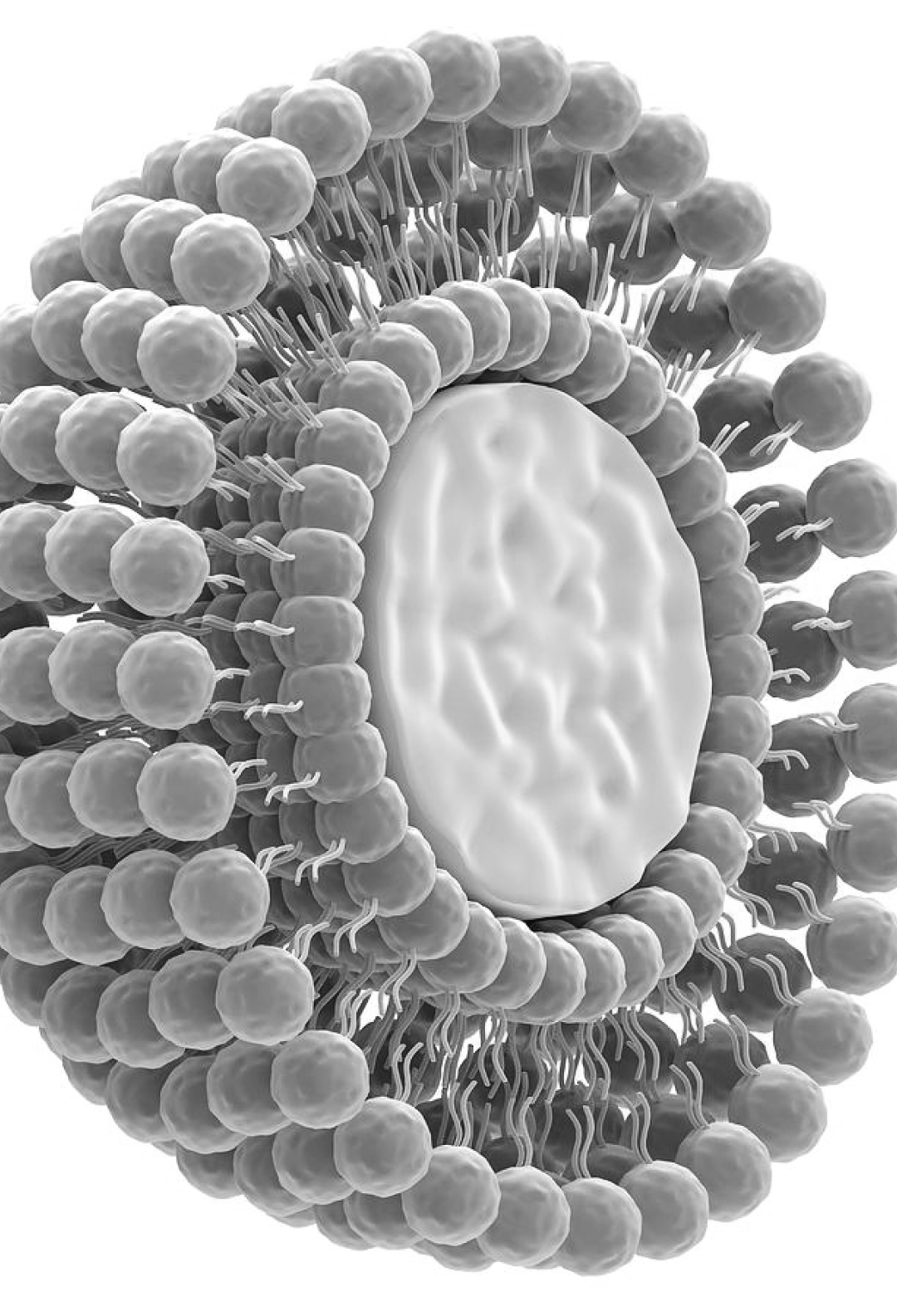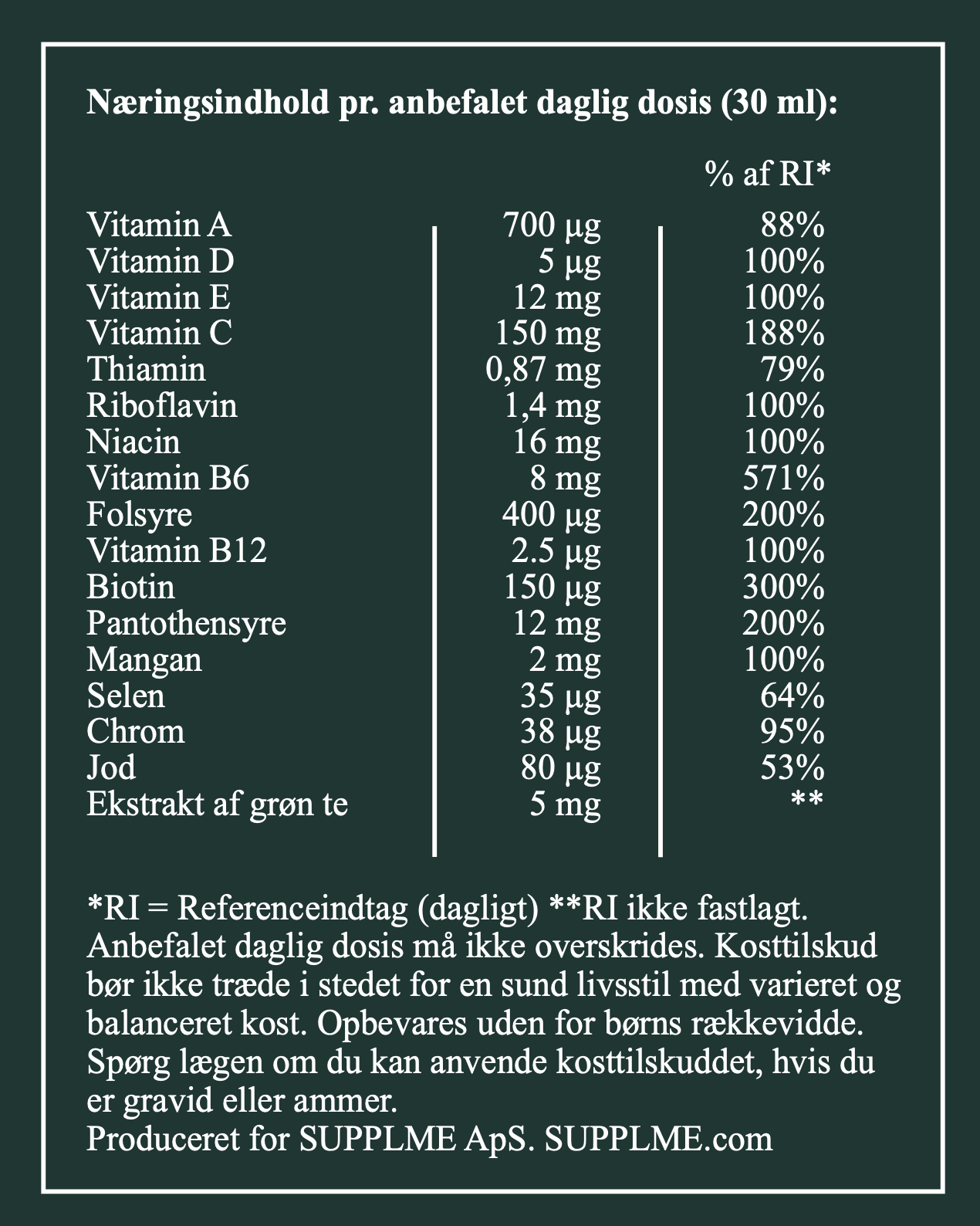Supplme was born in Denmark with only one purpose.
Give athletes products that is more effective than any other brand on the market. We shared a mutual frustration with the supplement industry dominated by pills, capsules, and messy powders.
That’s why we made effective, clean and convenient liquid supplements. What once seemed impossible, we made possible through our research. We cutted out all the bullshit and used liposomes, allowing your body to absorb more of what you actually take in, which leads to where we are today.
Arguably the most competitive products on the market.

What Are Liposomes?
Liposomes are microscopic spherical vesicles composed of phospholipid bilayers, closely resembling the natural structure of cell membranes in the human body. This similarity allows liposomes to fuse with cell membranes, facilitating the direct delivery of encapsulated nutrients into cells. By protecting vitamins and minerals from degradation in the digestive system, liposomes can enhance the effectiveness of dietary supplements.

Enhancing Uptake and Absorption
When you consume traditional supplements, a significant portion of the nutrients can be lost due to breakdown by stomach acids and digestive enzymes. Liposomal delivery aims to address this challenge by encapsulating nutrients within a protective phospholipid layer. This layer shields the vitamins and minerals as they pass through the digestive tract, increasing the likelihood that they reach the bloodstream intact.
Research has suggested that liposomal formulations can improve the absorption of certain nutrients. For example, a study published in the journal Nutrition and Metabolic Insights indicated that liposomal vitamin C resulted in higher blood concentrations compared to non-liposomal forms, suggesting enhanced absorption (Wilson, 2019). Similarly, studies on liposomal vitamin D have explored its potential to more effectively raise and maintain vitamin D levels in the body (Johnson & Lucero, 2020).

The Science Behind Liposomal Delivery
The effectiveness of liposomal delivery lies in its ability to mimic natural biological processes. Since liposomes are made of phospholipids—the same materials found in cell membranes—they can merge seamlessly with cells in the body. This fusion allows the encapsulated nutrients to be delivered directly into the cells, bypassing some of the obstacles that reduce the efficacy of traditional supplements.
A study in the International Journal of Nanomedicine highlighted how liposomal delivery systems could enhance cellular uptake of nutrients by merging with the lipid-rich environments of cell membranes (Anderson et al., 2022). This direct delivery mechanism distinguishes liposomal supplements from conventional forms, which may rely on less efficient absorption pathways.
Exploring the Potential of Liposomal Supplements
While research into liposomal delivery is ongoing, early findings suggest that this technology holds promise for enhancing the delivery of a variety of vitamins and minerals. Nutrients such as vitamin C, vitamin D, B vitamins, magnesium, and others have been the subject of studies investigating the benefits of liposomal formulations.
For example, liposomal vitamin B12 has been studied for its potential to improve energy levels and cognitive function due to better absorption (Lee & Kim, 2021). Similarly, liposomal magnesium formulations have been explored for their ability to more effectively address magnesium deficiencies (Garcia et al., 2022).
Conclusion
Liposomal delivery represents an exciting area of nutritional science, with the potential to enhance how our bodies absorb and utilize essential vitamins and minerals. By encapsulating nutrients within liposomes, this technology aims to improve uptake, absorption, and bioavailability, potentially offering greater benefits than traditional supplement forms.
Disclaimer
Please note that at Supplme.com, we are currently exploring the subject of liposomal delivery and its potential benefits. The information provided here is intended for educational purposes and should not be taken as an indication that all of these benefits apply to our products.
Join our community now
Subscribe to be notified about Nutrition news, stories & personal offers.









